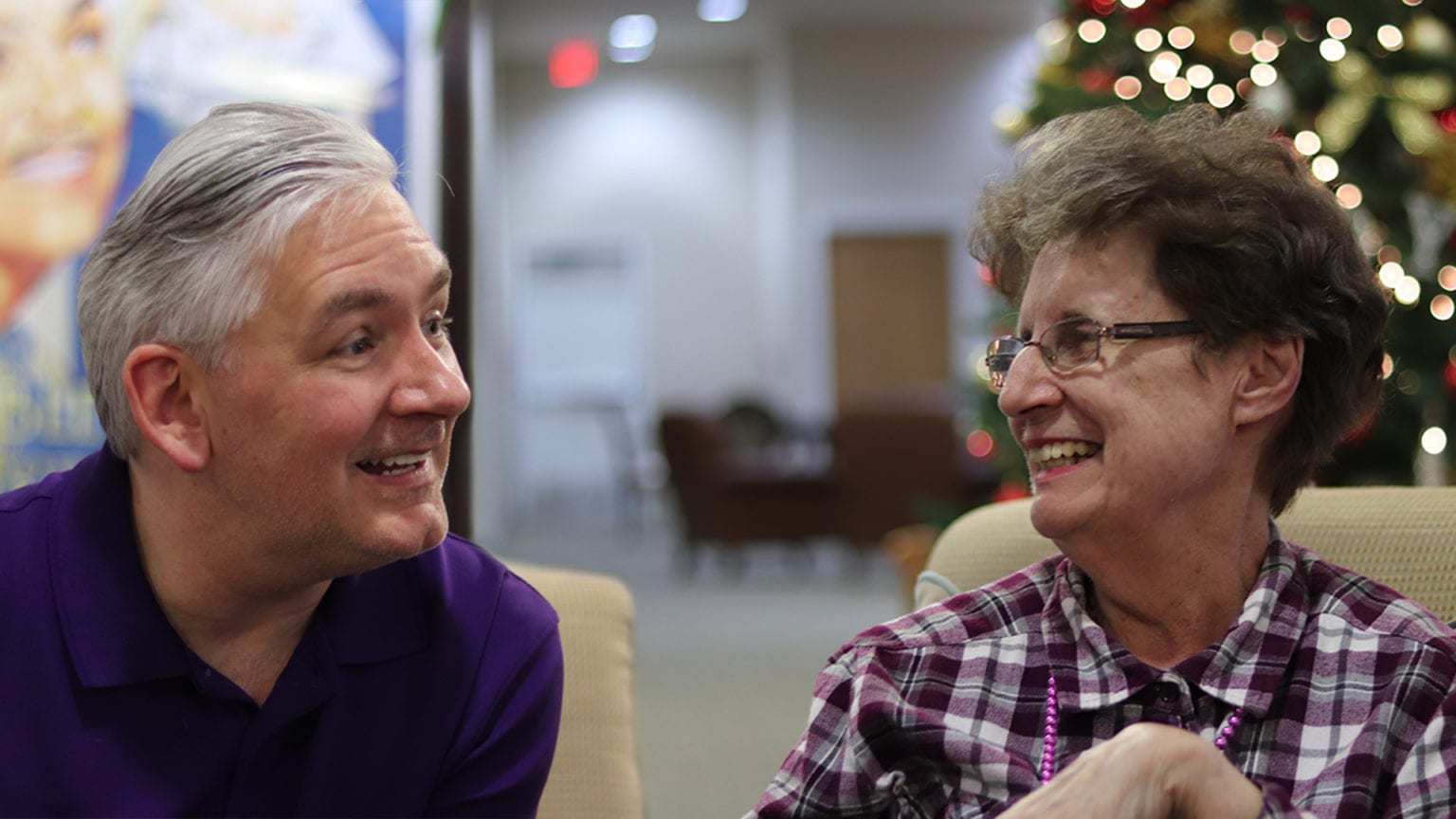Most people who have Alzheimer’s live with the disease for many years. And most continue talking, at least until the latest stage.
My mother-in-law, Trish, lived with Alzheimer’s for more than 10 years, and she loved to talk. When she lost her ability to store new memories, we had to figure out new ways to have conversations. But it was never very hard to get her talking.
When I lead singalongs at memory care facilities, I talk with as many residents as I can. Many residents are eager to talk and tell stories. With people who are ready to talk, all I need to do is listen.
Some residents, however, are not very talkative. Some may be shy or nervous. A few may have lost the ability to speak. But some just need a little help to get going.
So, I have learned to keep talking. Talk even when you are not sure if the person is listening or can understand you. Keep talking, and keep listening. And be patient. Allow the person time to reply. You may find a certain word or song, or maybe a timely smile, opens the door to a new conversation.
Two Quiet Men
My friend Bob doesn’t say much. Maybe he never did. But by the time I met him, he had been living with Alzheimer’s for a few years and had moved into a memory care facility. If you want to hear Bob talk, just tell him: “I know you were in the Army.” His face will light up, and he will stand a little taller, proud of his years of service. And he will begin to tell you stories.
My friend Bill had been living with Alzheimer’s for many years. But I had never heard him talk. I didn’t really think he could talk. Then one day, after we sang “Take Me Out to the Ballgame“ together, he started telling me stories about baseball.
Cherished Memories
My friend Cynthia used to play the piano and the organ for her church. Alzheimer’s has now stolen many of her memories. She is often confused about where she is, and she often sits quietly with a blank expression on her face. If you saw her, you might guess she could no longer talk.
But Cynthia remembers her name. When she hears me say “Hi, Cynthia!” she perks up with a bright smile. She doesn’t remember my name, but that’s okay. She usually says “hi” in return. But sometimes she says: “Cynthia! That’s my name.”
And Cynthia remembers music. I say to her: “I know you played the piano at church.” She will say to me: “Yes. Yes, I did. I played the piano. And I played the organ. I played all the songs.”
In that moment, Cynthia is young and alive. She is remembering the music of her life.
RELATED READING: Facing Alzheimer’s With Songs, Smiles, and Joy


Alzheimer’s is a thief of memories and dreams, and when angels are present
they are there for those that need them, but don’t know it.
There are sad tears, happy tears, and tears that have no description, because no description is needed.
One must keep an open mind, for a closed mind has no options, but an open mind does.
Reality is sometimes harsh, but always honest, honest to all.
Take care.
Yes, there are sad tears and happy tears, often at the same time. Take care.